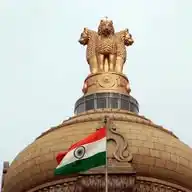
UPSC Polity UPSC UPSC UPSC UPSC UPSC UPSC UPSC UPSC UPSC UPSC UPSC™ UPSC UPSC UPSC UPSC UPSC UPSC™
January 22, 2025 at 02:23 AM
🔆The article analyzes the legacy of Manmohan Singh's tenure as Prime Minister of India, focusing on his approach to social justice, secularism, and economic reforms.
Key Points:
✅Contrasting Leadership: The article juxtaposes Manmohan Singh's leadership with that of Barack Obama, highlighting their shared commitment to liberalism and their contrasting experiences in navigating domestic challenges.
✅Balancing Secularism and Social Justice: Manmohan Singh faced a dilemma between promoting secularism and addressing the demands of social justice, particularly regarding reservations for OBCs. His indecisiveness on this issue contributed to the rise of the BJP.
✅The 2009 Elections: The Congress's victory in 2009, particularly in the Hindi heartland, was attributed to the implementation of reservations in higher education, a policy championed by Arjun Singh.
✅Unintended Consequences: The Congress's focus on minority interests and perceived neglect of OBC concerns inadvertently contributed to the rise of Hindutva politics.
✅Missed Opportunities: Manmohan Singh's reluctance to address social justice concerns comprehensively and engage with the OBCs represents a missed opportunity to consolidate a progressive political alliance.
✅Possible UPSC Prelims Question:
Which of the following policies during Manmohan Singh's tenure faced significant opposition within the Congress party?
A. Economic liberalization
B. India-US nuclear deal
C. Reservations in private educational institutions
D. Climate change negotiations
✅Possible UPSC Mains Question:
Discuss the challenges faced by Manmohan Singh in balancing secularism and social justice during his tenure as Prime Minister. Analyze how his decisions and indecisions on these issues impacted the political landscape of India.